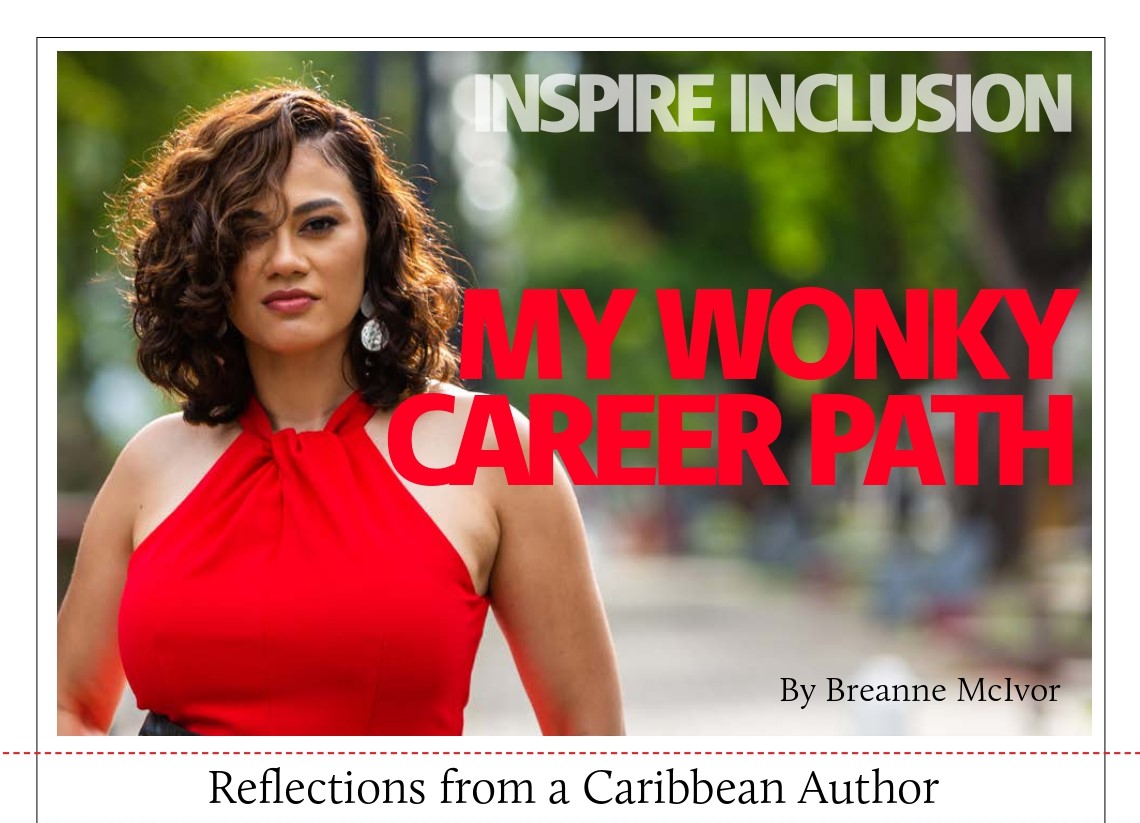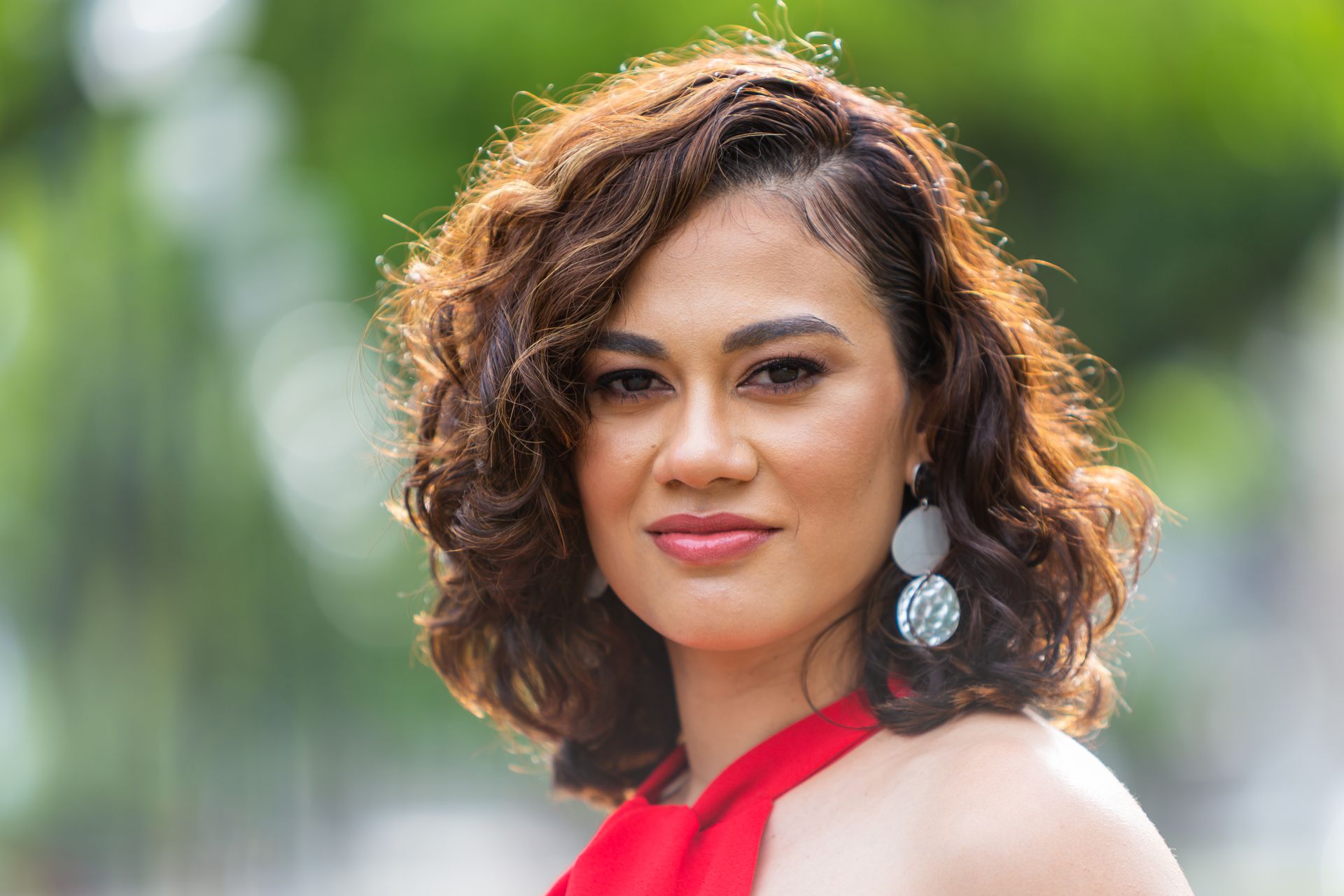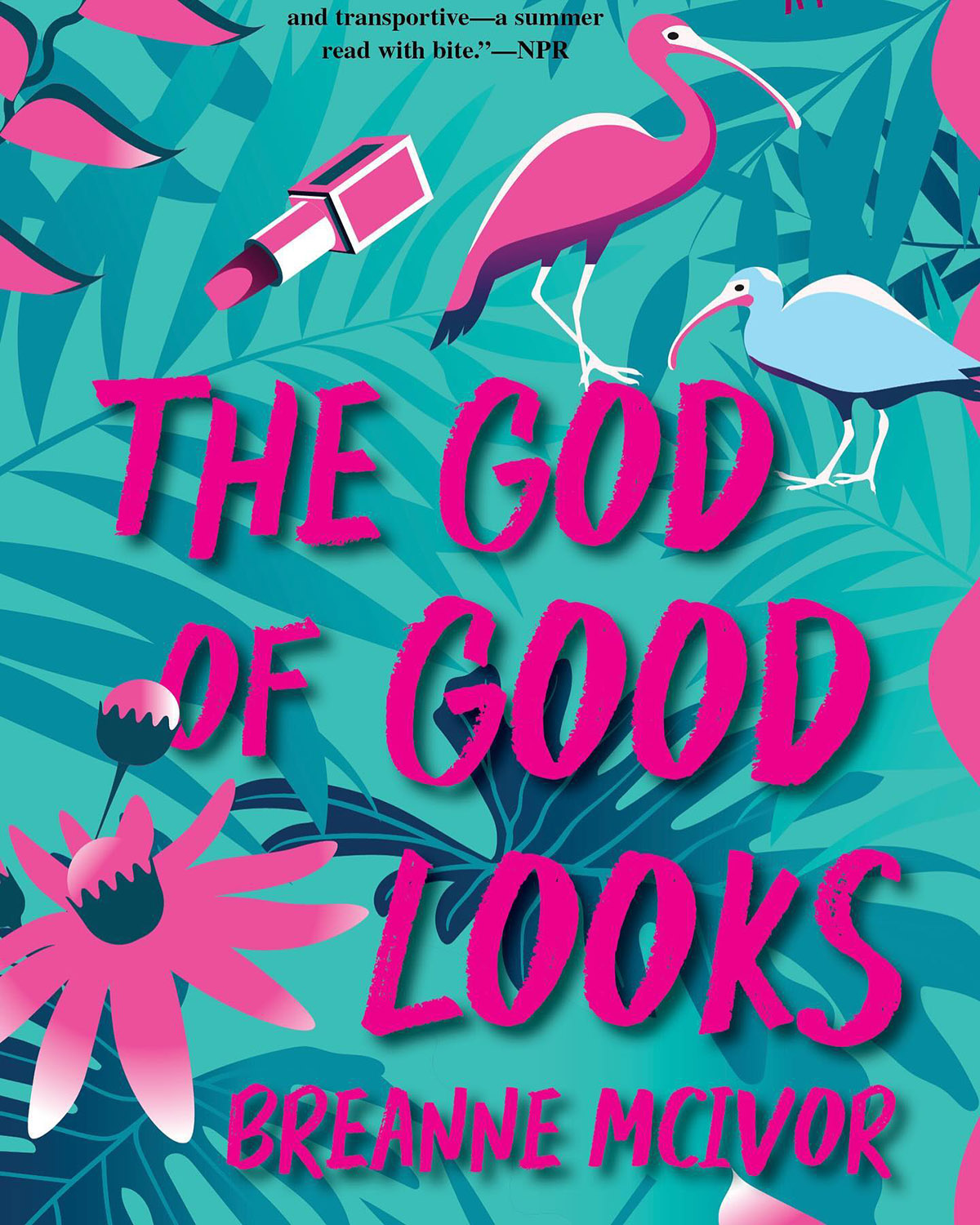My Wonky Career Path
By Breanne McIvor
Award Winning Author

LINKAGE Q2 (2024) - INSPIRE INCLUSION
T
here’s a coffee shop that I used to visit regularly. I usually went in around mid-afternoon in a T-shirt and shorts. Maybe the barista wondered why I wasn’t in an office because one day, he asked me, “What do you do?” His tone of voice suggested that I was slacking off by going for all these mid-afternoon coffees. I told him I was a writer. The barista did a double take. He said, “You make money doing that?”
For a lot of my life, I’ve asked myself a version of this question. Not whether I could make money from writing—although I wanted to—but whether I could be a writer at all. I’ve wanted to be an author for as long as I can remember. Longer even, my mother tells stories of me following her around as a little girl ‘reading’ to her before I knew how to read. In my secondary school yearbook, I said I wanted to be a novelist. But when I graduated from university the how eluded me. How did you go from writing stories in your head and on your laptop to publishing a book?
While I figured it out, I worked various day jobs and wrote at night. I submitted my writing to competitions. Occasionally, I won or made the shortlist but most times, I got a polite rejection or sometimes no rejection at all—I realised I hadn’t won when the winners were published online. My research told me that this was normal and that I shouldn’t be discouraged. Still, there were times when I felt very discouraged.
While few jobs have clearly signposted paths, the path to being a writer seemed particularly wonky. You could study English but then again, you didn’t have to. You could get an MFA in Creative Writing, but many successful writers haven’t. You should enter competitions, but that is no guarantee of success. And you should read voraciously; this, at least, I’d always done.
So, I continued along this wonky career path, and in 2019 my first collection of short stories was published. Shortly before publication, I ran into a more experienced writer at the airport. “Can I give you some advice?” he asked. “A lot of people think publishing their first book will change their life. But you wake up the day after and your life is exactly the same.”
He was both completely right and completely wrong. Having a published book allowed me to reach more readers. It allowed me to travel to international literary events and network beyond the Caribbean. My collection wasn’t a smash hit, but it was a springboard to opportunities I’d never had before. Still, my day-to-day life was exactly the same. I continued to work my day job and write at night. I continued to enter competitions and, although I made more shortlists, rejections were still common.
I knew that the next step in my writing career should be getting a literary agent. So, I emailed agents, telling them a bit about me and my writing, and asking them to consider representing me. I thought I had a good idea for a book. My unpublished novel was called The God of Good Looks and was a summer read with a bite. The Devil Wears Prada meets Bridget Jones’s Diary set in the Trinidadian makeup industry.
I was braced for the usual barrage of rejections. But, to my surprise and joy, several agents were interested. However, the version of the novel they wanted was not a novel I wanted to write. Agents suggested that I should edit my portrayal of Trinidad to make it more recognisably Caribbean. Think more white sand beaches, less crime. One agent explained that international audiences had a particular idea of the Caribbean, and it would be best for sales if I leaned into this.
W
e’ve all seen movie scenes where the camera pans to coconut trees in the background as people drink rum on a beach, there’s a steel pan playing, and the audience knows, we’re in the Caribbean. But I wasn’t writing about some tourist postcard brochure of “the Caribbean”. I was writing about the modern Trinidad I’d grown up in, the one I lived in, and the one that is a complex blend of crime, and Carnival culture, and people all striving to live their dreams. I knew most agents would ask me to edit my manuscript; but I wasn’t prepared to edit the authenticity out. Almost a year and a half after I sent out my first agent queries, I was still unrepresented. I was back to wondering how a person became a writer.
Finally—wonderfully—I got the agent of my dreams. She was someone I hadn’t dared to email before because I saw the authors she represented and thought I wouldn’t have a hope in hell. It’s still surreal that she’s my agent. In 2023, The God of Good Looks was published by HarperCollins in North America and by Penguin Random House in the UK and Commonwealth. All the references to crime were still in there.
I did the thing I’d long dreamt of doing and quit my day job.
I had several pinch me moments on my publication journey. I remember sitting in a coffee shop and seeing an email from my agent. The God of Good Looks was one of Oprah’s most anticipated books of 2023. I met readers who said they’d fallen in love with my characters and readers who said that they saw a different side of the Caribbean in the novel. I signed a lot of books.
Interestingly, while some prospective agents once thought that my novel was too serious, there were some local readers who thought it was not serious enough. I was asked why I had turned from writing literary stories to chick lit. “Chick lit” itself is a contentious term in publishing which, in its worst incarnations, is used to dismiss books written and predominantly read by women as too frivolous. And there were those who thought that my book about makeup, scandal, and comeuppance could never be “serious literature”. There are generations of readers raised on Nobel Prize laureates like V. S. Naipaul and Derek Walcott—men who have long dominated and defined discussions of what it is to be a Caribbean writer—and these readers want more books in their mold.
And that’s their prerogative. Years of racking up rejections taught me that not everyone will like your writing. That’s okay. There is a larger discussion to be had about why books about so-called “women’s issues” are dismissed by certain readers. Meanwhile, there are no books about “men’s issues”, not because men don’t have issues but because there is no separate literary category for men. Their issues are, still, assumed to be more universal. Despite this, I see the ways that harmful gender stereotypes are being eroded, however slowly, and I want to continue to write books that help with that erosion.
These days, I’m sometimes asked to visit schools to talk to students about how to be a writer. Some students do ask how you make money writing. And I tell them that I’m still not sure I’m qualified to answer that, but I’ll try. There’s always at least one though who wants to know how you become a writer. They have a copybook—and a head—filled with stories. I genuinely don’t know if I can tell them anything helpful. Except this, keep writing the thing that only you can write, the thing that’s true to you. Keep working, keep trying, and one day your story will find a home.
ABOUT THE AUTHOR

Breanne McIvor is an Award Winning Author from the Caribbean
